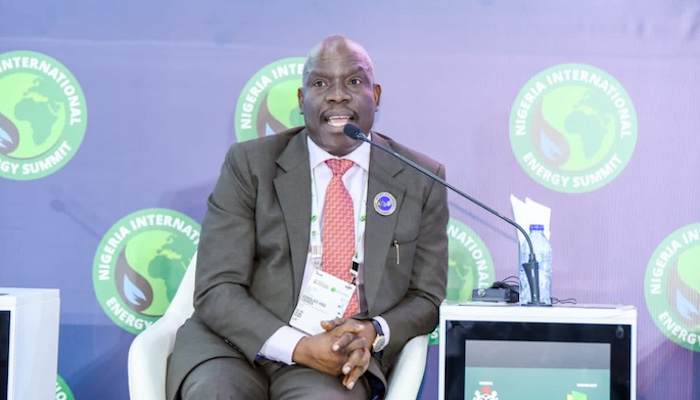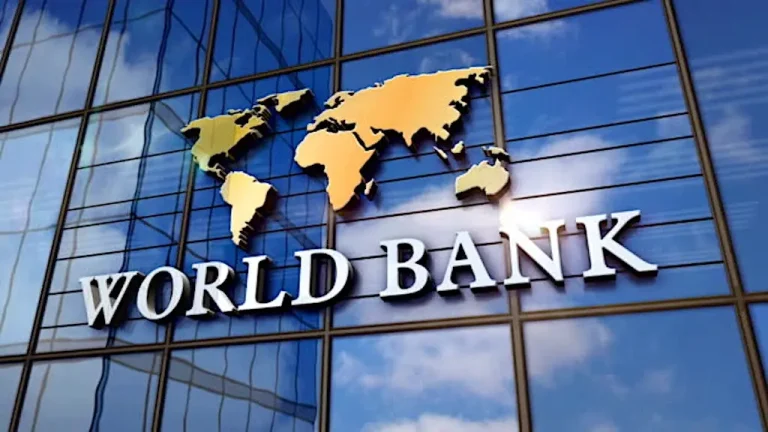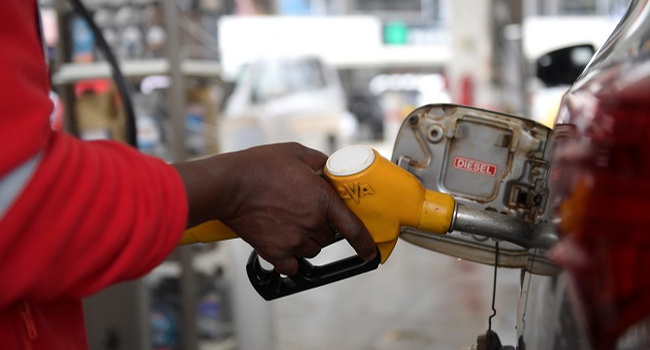
The Nigerian Upstream Petroleum Regulatory Commission (NUPRC) has disclosed that the 2024 oil licensing round is expected to yield as much as 1.5 billion barrels in oil output for Nigeria within the next 10 years.
The Executive Commissioner, Exploration and Acreage Management (E&M) of the commission, Mr. Bashir Indabawa, stated this in a special edition of the NUPRC’s magazine to mark the 4th anniversary since its establishment.
Looking back over the last four years, Indabawa stated that the E&AM department has recorded several significant milestones in assessing the hydrocarbon potential of Nigeria’s sedimentary basins, building on the regulatory foundation for the implementation of the Petroleum Industry Act (PIA) 2021.
Besides, he said the commission expanded geoscience data coverage by facilitating the acquisition, processing and reprocessing of large volumes of 2D and 3D seismic data across both the onshore and offshore basins and advancing Nigeria’s multi-client projects.
This, he said, was done in partnership with local and international geophysical companies, to de-risk exploration and attract investments.
The NUPRC in 2024 opened an ambitious upstream licensing round aimed at revitalising Nigeria’s oil and gas sector. At launch the regulator invited bids for 12 new blocks onshore, continental shelf and deep offshore, alongside seven deep-offshore blocks carried over from the 2022/23 mini-bid round, bringing the initial package to 19 blocks.
However, following acquisition of additional subsurface data and a review of acreage, the NUPRC added 17 more deep offshore blocks while withdrawing five blocks under litigation (PPL 3008, 3009, PML 51, PPL 267, PPL 268), resulting in a revised total of 24 to 31 blocks on offer depending on counting method.
While implementing the ‘Drill or Drop’ provisions of the PIA to reduce the number of inactive or underperforming licenses through monitoring and enforcement, Indabawa stated that about 400 fields were identified as fallow or inactive.
“Four companies from the 2020 Marginal Field Licensing Rounds have applied for conversion to Petroleum Mining Licence (PML) and added about 80MMbbl of oil reserve. In total, we are expecting the recently concluded 2024 Licensing Rounds to add between 500 million to 1.5 billion barrels of oil within the next five to 10 years,” the executive commissioner stated.
While big players remain cautious due to geological risk, security and energy transition dynamics, the Commission’s strategy, he said, has encouraged indigenous operators to take the lead, setting the stage for broader participation once more discoveries and infrastructure are established.
“Exploration activity has picked up since the 2023 decline. The NUPRC achieved this by enforcing acreage work obligations, fast-tracking Field Development Plans (FDPs), launching bid rounds, improving data access and deploying the Frontier Exploration Fund (FEF).
“The result is a number of seismic surveys, exploration wells and approved projects, which are expected to stabilise and grow Nigeria’s oil and gas reserves in the medium term. The 2023 regulations have brought structure, funding and transparency to frontier exploration.
“Early wins include stronger data coverage, improved industry participation (especially indigenous) and proof-of-concept developments like Kolmani. However, sustained success will depend on addressing security, infrastructure and energy transition dynamics to fully unlock Nigeria’s frontier hydrocarbon potential.
“The passage of the regulation has brought about a resurgence of exploration activities by the NNPC- Enserv to acquire geological, geochemical and geophysical data in the frontier basins.
“This is a key element of de-risking these basins to enable hydrocarbon discovery and exploitation. Kolmani exploration phase has been concluded and is now in the FDP phase.
Re-entering the Chad basin through Wadi wells drilling campaign and the ongoing drilling effort in the lower Benue trough via the drilling of Ebenyi-01 well in Obi LGA of Nasarawa State are testimonies of renewed exploration activities brought about by the passage of the regulation”, he stated.
According to him, the recent bid rounds have helped unlock reserves from dormant marginal fields and open blocks by reallocating them to new operators with technical and financial capacity.
In his own interview, Executive Commissioner, Development and Production, Enorense Amadasu, a veteran in the oil and gas sector, highlighted the recent increase in oil, condensate and gas reserves.
“In view of this performance, the Commission is focused on growing the nation’s crude oil production to 4 million barrels per day in the year 2030 in line with the government’s aspiration.
“There has also been a rise in gas production. The average gas production increased by about 1.20 per cent between 2022 and 2025, resulting in a current average gas production of 7.61 million barrels per day. It is important to note that gas production rebounded from the temporary dip between 2022 and 2024 due to the government’s drive towards a gas driven economy.
“Consequently, the Commission is focused on further optimisation of regulatory oversight to bolster efforts towards achieving the government’s aspiration of 12 BSCF/D in 2030.
Crude oil theft also dipped significantly. There has also been a decrease in gas flaring. The average daily gas flare decreased by about 20.29 per cent between 2021 and 2025 underscoring our drive to 2030,” he stated.
In his contribution, the Executive Commissioner, Economic Regulation and Strategic Planning (ER & SP) at the NUPRC, Mr. Babajide Fasina, emphasised the commission’s strategic vision of ensuring thG hydrocarbons fund Nigeria’s energy transition.
He pointed out that the Nigeria Gas Flare Commercialisation Programme (NGFCP) is meant to convert waste into economic value to achieve zero routine gas flaring by 2031 and monetise approximately 50 per cent of total in-country gas flares.
“Furthermore, we are increasing reserves through some regulatory reforms like the reactivation of shut-in wells. About 700,000 barrels/day of potential production will be unlocked by reactivating previously shut-in wells, boosting short-term output and reserves recovery,” he added.
Also speaking, Chairman and Managing Director, ExxonMobil Subsidiaries in Nigeria, Jagir Baxi, said that Esso is rapidly progressing its investment in the form of an infill drilling programme in the OML 138 (Usan) block with its partners.
This investment, he said, will occur from this year until 2027, describing it as an example of where the NUPRC and Esso have collaborated towards an update to the FDP which is nearing approval.
“Esso anticipates that this investment will unlock around 30 – 40 thousand barrels of oil per day (30-40 KBD) through multiple new drilling targets in the Usan field,” Baxi stated.
However, he stressed that there are opportunities to improve the regulatory environment, which is only natural when implementing such a complex regulatory reform.
“Areas that can continue to improve include over-lapping roles of regulators and further adjustments that can create more globally consistent investment competitiveness,” he stated.
Emmanuel Addeh


